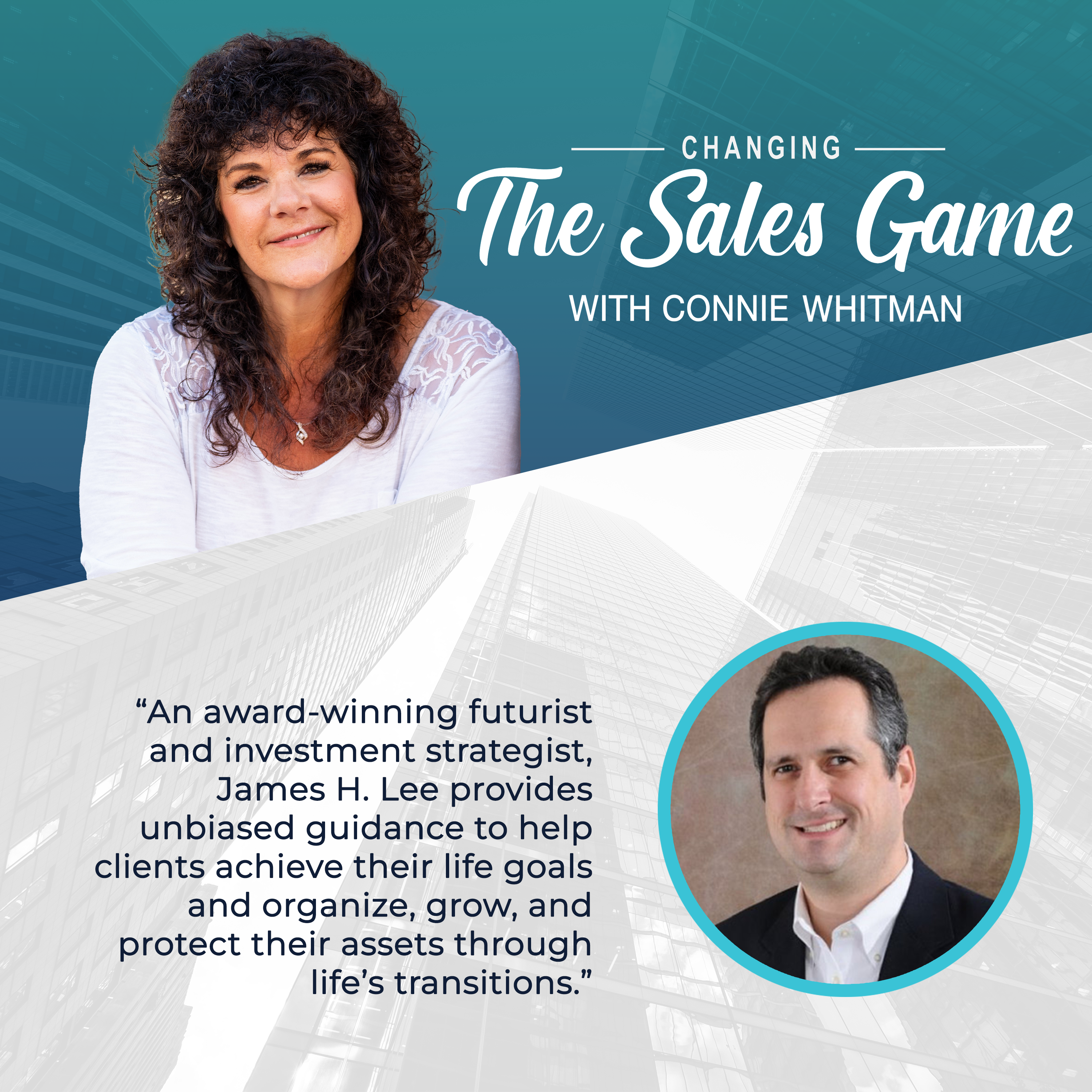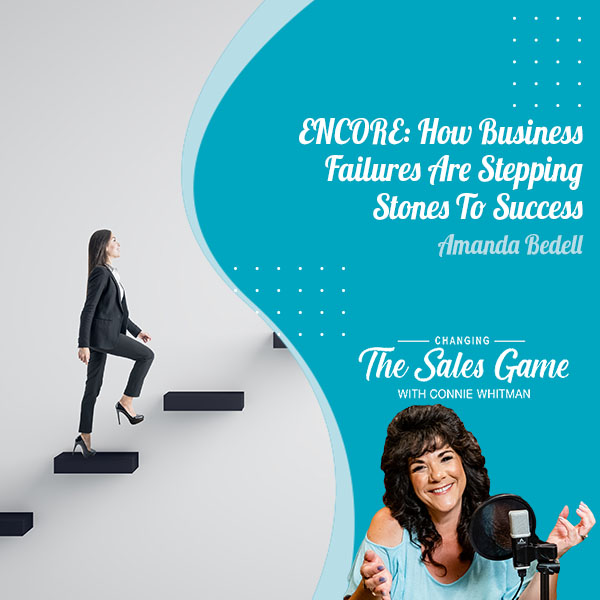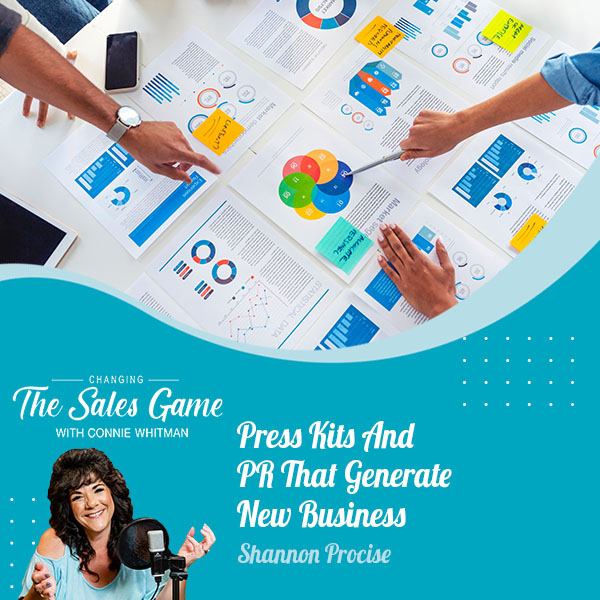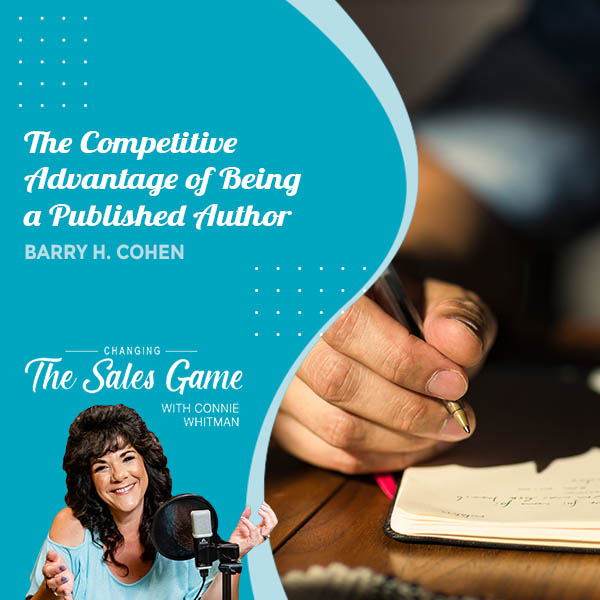The magnet principle says like attracts like. You’ll attract to you the people, circumstances, events, money, and resources you need to accomplish your goals.
Mark Victor Hansen
Check Out These Highlights:
Being in business is not for the faint of heart. The amount of noise in the marketplace is daunting and finding where you fit in, in business, can be a challenge. I believe that if you choose to do what everyone else is doing, you are likely to get the same results. The big question is, “are those results the results you are personally or professionally looking to achieve?”
So what’s the key ingredient in standing out and shining your light? Be yourself! Only you can do you! You deserve to attract a following of loyal customers who are fanatical about you and your business.
Be A Magnet, Not A Hook With James H. Lee (EP. 81)
As always, thanks for joining us. I know that the word sales is that icky, sleazy, manipulation vibe to it, and I totally get it. Here’s the deal. I have a free gift for you to help you on your journey of changing that mindset of the ick factor to come from this place of love, caring, and respect. Go to www.WhitmanAssoc.com/CSA and get your free communication style assessment. You get a report that shows your natural superpowers on how people perceive you. On the flip side, you get a report showing your lowest style, which is typically our blind spot. I hope that helps you shift that mindset so you always come from a place of love, care, and respect every time you’re talking with other humans in the world.
My motivational quote is by Mark Victor. Mark says, “The magnet principle says, ‘Like attracts like.’ You’ll attract to you the people, circumstances, events, money, and resources you need to accomplish your goals.” Being in business is not for the faint of heart. The amount of noise in the marketplace, I find daunting. Finding where you fit in in business can truly be a challenge. I believe that if you choose to do what everyone else is doing, you’re likely to get the same results. Not always good.
The big question here is, “Are those results you are personally and/or professionally looking to achieve?” What’s the key ingredient in standing out and shining your specific light? Be yourself. Only you can do that. You deserve to attract a following of loyal customers who are fanatical about you and your business.
I have an amazing guest, James Lee, my brother from another mother. Jim and I are going to discuss how he made a leap from traditional sales and financial services to becoming radically successful in an unconventional niche. Jim is an award-winning futurist and investment strategist. He is the Founder of StratFi and the author of Foresight Investing: A Complete Guide to Finding Your Next Great Trade. Jim, thank you so much for taking the time and being on the show. This is important stuff we’re talking about.
About James Lee
Jim and we are going to discuss how he made the leap from traditional sales in financial services to become radically successful in an unconventional niche.
Jim is an award-winning futurist and investment strategist. He is the founder of StratFI and author of Foresight Investing: A Complete Guide to Finding Your Next Great Trade.
How to Get in Touch with James Lee:
- Email: jlee@stratfi.com
- Websites: http://www.stratfi.com/
I’m looking forward to this conversation too. I’m resonating with your message already.
It’s so funny. When I write the intros, I always try to find that quote that sets the stage, and then I build my introduction off of what my guests send me, as well as the quote to get us in that zone of thinking before the conversation even begins. The first question is, were you ever a hook? Can you define that for us?
Don’t Be A Hook
I was a hook without even knowing it. The idea of being a hook is when you need to find your customers, you hunt them down, you catch them, and then you drag them in. I started in the early 1990s working for a national planning firm. We did 1990-style financial planning using 1980s-style marketing which involved making a lot of calls and talking to a lot of people. It is playing the numbers game where you have this funnel where you reach a broad audience, you narrow that audience down, and then you follow through until eventually you “make the close.” What’s happened is we’ve gone from a very transactional model of advice to more of a relationship-driven model of advice, which is where you want to go.
Back in the 1990s we did financial planning by the pound. We were in the business of selling books of financial plans, and these were binders that were 300 pages long that would cover everything. It was exhausting, to be honest, which is why I burned out and stopped doing that because I was spinning my wheels, wasting a lot of time talking to people who didn’t necessarily want to talk to me, and saying the same things over and over again.
At the time, the training that we received which was considered good at the time was to go through a very structured process with our clients. We were taught a 40-minute interview script, word for word. Maybe that was good if you’re just coming out of college and you don’t know how to talk to people, but you grow out of that, you move beyond that, and you need to do something else at some point.
There are a couple of comments on that. For somebody starting out, that type of structure is good because they don’t always know. When I was younger, I had no network. I didn’t know anybody. I didn’t know how to talk about sales. I didn’t even know what sales was coming out of college. I do agree with that. It’s funny because you mentioned the word wanting to be building relationships. I remember when I started in financial sales as well. I’ll share a funny story. On the first day, it was Prudential whom I worked for, and they gave us a script. It was back in the early ‘80s. They gave us a phone book and said, “Here’s the script. Go make these phone calls.”
I follow the rules. We’d make phone calls at night and it was like, “Good evening.” I can’t even say good evening without sounding like I’m a vampire. I was twenty-something years old. It was all commission. There was no salary. I quit a job with a salary and took this job. I’m thinking, “I have a personality. I’m smart, I’ve got all my licenses. This is going to be easy,” yet not. I was an epic fail that first night. I remember I went home and I was living with my parents at the time. I had a car payment. That was it.
I remember lying in bed that night thinking, “What have I done? You crazy person, you left this perfectly good job, and now how are you going to make money?” I realized during the night that the script, it wasn’t me. It didn’t feel right. It was super uncomfortable. I went in the next day and outlined the point that they were trying to make with, “This is Connie from Prudential. Good evening.” It was an introduction. I just don’t talk that way. My introduction many years later is, “How are you doing?”
I would get on the phone and I would say, “This is Connie from Prudential. How are you doing?” I edited their script. In all of my years of training, I have never ever allowed anyone to use a script because you can’t talk the way I speak and I can’t speak the way you speak. It sets us up for failure. The other thing is exactly what you said before. It keeps us from creating dynamic relationships and for us to truly get to know who that client is and how I could potentially help them.
You’ve got to be you. Sometimes structure can get in the way of that, but sometimes structure prevents you from getting in your own way.
You've got to be you. Sometimes structure can get in the way of that, but sometimes structure prevents you from getting in your own way. Share on XHow are you different now other than what you’ve already shared with us, and what do you think the advantages are now with how you do business?
At this point, it’s pretty much inbound marketing for me. I am not in a position, thankfully, where I have to make 70 to 100 phone calls a week. I don’t focus on finding the right client or customer. I make it easy for them to find me. In essence, people self-select. My marketing these days is mostly answering the phone and doing things that are interesting so that other people end up talking about me more. The old sales training in the 1990s was asking for referrals. Again, that hook, and nobody wants to be hooked. Nobody wants to be dragged around. These days, I don’t ask. It just comes in and it’s a much better place to be in.
Magnet Vs Hook
It feels better, it’s easier, and everybody wins. It’s about building relationships. Everybody talks about that like, “Build relationships,” but no one tells you how to build that relationship. What are the disadvantages and advantages of being this magnet versus the hook? That’s what we’re talking about.
Let’s talk about what being a magnet is. Being a magnet is being someone and doing things that attract people to you. Being a hook is dragging them in. I’ve done both. I started out and was semi-successful for the first 6 or 7 years of my career doing it the old conventional way, but it was exhausting. In the last ten years after starting my own firm and being my own person, I learned how to do the things that make me happy, which in turn makes the people around me happy. That’s a much better way to go.
The drawback, as you mentioned, is that things don’t happen as quickly necessarily. It’s harder to start from scratch when you’re a magnet because you might not necessarily have the visibility or the momentum for people to find you. The biggest drawback is that it does take longer. It takes longer to get people to come on board. Sometimes I’ll know people for 10 or 15 years where they send that email or make that call or whatever. It also makes those relationships stay around longer too. Retention goes through the roof, and that’s a big plus. It’s a better way of doing things if you can do it.
There are some thought leaders out there in sales who believe if you don’t have a 25% refund ratio where people ask for a refund, you’re doing it wrong. One of my clients was in a program like that. When she said that, I said, “What did you say?”
That sounds high to me. If I have to refund 25% of my customers, then I’m doing something wrong.
That’s what I thought. I thought, “Did you get the percentage wrong?” I thought maybe 5%. Things change sometimes, nobody’s fault. She says, “No, they told me if I don’t have a 25% refund ratio, I’m doing it wrong. I’m not pushing hard enough.” That’s when I thought, “The word pushing is the problem.” For me, if I get one refund, I’m crying. “What did I do wrong? Were they not the right person? Did I not service them?”
The key here is almost anticipating problems before they become problems and knowing when to say no. We are so busy sometimes trying to impress, trying to get other people to like us, that sometimes we end up working with unlikeable people. That’s a problem. That is not going to work either. Remember when you meet with someone, it is in fact a two-way interview. They are screening you, but you are screening them as well. If there’s anything going on in the back of your head saying, “This is not going to work,” you need to pay attention to that voice because that’s self-protection going on right there.

Talk to me about how you have made yourself a magnet. What are some of the strategies that you’ve used to do that attraction versus the hook perspective? I love that magnet versus hook visual. What have you done strategically to be able to build that? It’s not transactional. It does take time for people to know, like, and trust us. How did you do that? What are some of the strategies?
This goes back to what you led with. That’s the idea that if you keep doing what everyone else is doing, you’re going to get the same results. You’re also not going to stand out because you’re going to look like everyone else, and you’re going to be interchangeable with everyone else at that point too. Where I started a niche was to figure out what I enjoyed doing to figure out what happens next. I took an unconventional mid-career route. When it was time to get a graduate degree, I had a choice between getting an MBA, which sounded like a completely rational thing to do, or becoming a professional futurist, which was a little wacky, but a lot of fun. Given normal versus fun, I will tend towards fun.
I found there’s a one-degree program in the United States that will teach you how to become a futurist and do forecasting scenarios like black swans and all of these things. It’s in Texas. My wife at the time was applying for her graduate school in medicine, her fellowship. That happened to be in the same city as my graduate school was in. I found this global tribe of fascinating people who are interested in creating a better future. That was my niche. Even to this day, I am Delaware’s only professional futurist.
By being a little bit different, people are going to ask questions, but you also have the benefit of having a different angle or approach to what you do. My take is the view is always better from the edge, whether it’s a geographic edge, a social edge, or an interdisciplinary edge. I live at this boundary between foresight and finance, and I apply that to my work. That’s my niche.
The view is always better from the edge, whether it's a geographic edge, a social edge, or an interdisciplinary edge. Share on XLetting People Find You Vs You Seeking Them Out
How do you do your outreach to attract the right clients? What you described is awesome. How do people find you versus you seeking?
I like to write and I do a fair amount of speaking as well. People are always looking for speakers and materials. I would say my best marketing now is my own newsletter, which I put out on Constant Contact. It’s just a once-a-month thing. It’s all original content. I don’t use anything that I found anywhere else. It’s a little wacky because I realized a while ago that if I don’t find something interesting, chances are nobody else is going to find it interesting either. I only became successful when I stopped trying to be normal. Once I went a little bit over the edge, people started to pay attention to me.
Those are things about pot stocks, fake meat, and techy things that no one’s ever heard about in cryptocurrency. I started covering wacky investment ideas from the perspective of a financial analyst and all of that. What happened was that instead of reaching 500 or 1,000 people in my newsletter, it would get picked up by local media outlets and it would go out to 30,000 or 40,000 people instead. That message was amplified hugely. When people started looking for a futurist or someone talking about what’s coming up, they started reaching out to me and asking if I could do a talk on cryptocurrency or anti-aging technology or whatever. That’s how I built my reputation.
That’s amazing. How did you find those media outlets? I know everybody’s thinking, “How did he do that?” How did you get amplified to the 30,000 versus your couple of hundred or 1,000 on your email list?
A lot of that was local networking and meeting people locally. The joke is most places have six degrees of separation, but in Delaware you only have two, meaning that you’re just one step away from knowing pretty much everyone else in the state. There’s an advantage there. The other resource that I found which is quite powerful is an online service called Qwoted. It’s a dating service for reporters.
What they will do is they will tell you what they’re looking for in terms of the articles that they’re working on and you type your answers back in. If they like your answers, they’ll either qwote you directly based on those answers or they’ll follow up with you. I’ve gotten coverage from fairly surprising places for relatively little effort. I won’t mention the services, but I’ve gotten national coverage through that and international coverage as well.
These resources are out there, and that’s the problem, Jim. We don’t know what we don’t know. When we communicate, we have blind spots. If no one ever shines a light on the blind spot, how can you address it and fix it or find a solution? You don’t even know it’s there. Sometimes we’re shooting ourselves in the foot and we don’t even know we’re doing that. What a great resource. Is it only for finance, the Qwoted?
No, it’s for everyone. Anyone can use this. If you work at a traditional wirehouse, they have a lot of limitations in terms of what you can say or sending things through compliance departments and these types of things. There are a lot of controls that make it harder to be yourself if you are in a larger organization. It’s hard to get around that sometimes.

Compliance, legal, we need that stuff.
We need it with the best protection.
It’s funny. My husband and I just finished on Hulu Dopesick. Michael Keaton was in. It was great. It was about Purdue Pharma and it was about OxyContin and how, in the ‘90s, it created an epidemic of people who couldn’t eventually get the oxy so they would go to heroin. That’s why we have such a big issue now. We finished it. Remember, I’m in sales, and you’re in sales. I was so offended. Everybody reading, you should watch it. Everybody should understand what happened and how we have to keep organizations from teaching their salespeople to be so darn unethical. The sad thing is, most of the sales reps didn’t even know they were being unethical because they were sharing information about medical stuff that seemed very logical.
It was all manipulated data and information. I was angry at the end of watching this because I thought they took no responsibility. They got fined $6 billion or something, which they made $6 bajillion. Sales get a bad rep, Jim, because of stuff like that. It’s frustrating. I love how you approach it from that magnet hook so that we’re not aggressively pursuing, “Buy from me,” and me making a ton of money but I’m killing people on the other end. That whole story is tragic, but it’s a must-watch.
External Vs Internal Validation
That brings up the question of external versus internal or intrinsic motivation. When I was starting out, you have your sales manager, you want to make them happy, reach your numbers, and do things to make someone happy that don’t necessarily make you happy. Sometimes when you have your own firm and you’re just trying to do it for you and your client, it’s a much simpler equation to balance out.
I remember my sales manager. I was there probably for about two years. You’re a kid and trying to please everybody, do everything right, please your clients, and you’re learning. It’s such a struggle. I remember I’d met with a business owner who had a family and he needed a $1 million policy. This is back in the ‘80s. I come in the next day and I’m on the moon. I sold a $1 million life policy, and it was what the guy needed.
It was a referral and it was a good match. It wasn’t like I sold something I shouldn’t. I came in and I was so excited. I went to my manager and said, “I sold my first $1 million policy.” He looked at me and he said, “Why wasn’t it $2 million?” Talk about popping the balloon. It was like, “Are you kidding me?” I didn’t last much longer in that firm. That’s exactly what you’re talking about.
There are also other things too. Everything is two-sided, and that is sometimes if you don’t have a sales manager or a boss, you don’t know if you’re doing a good job or not, you don’t have that external validation. You don’t know your own blind spots, which is why you need to work with a coach, or you need to have a group so that you can have other people reflect back at you, and you get to see whether you like what you’re seeing or not.
Talk Less
I have two coaches now, and that’s another thing. It doesn’t have to be me per se, but if you’re a coach and you don’t have a coach, it is very dangerous because you have blind spots that you’re not even aware of because you have a blind spot. Coaches should have coaches as well because we do have blind spots. I know you talk about talking less. Can you explain what you mean by that?
It’s about listening because people will tell you what they want and they’ll just tell you. You need to tune into that so that you can make people happy. People do need to be listened to. If someone’s calling you with an issue or concern, don’t interrupt. Let them speak. Let them be heard. Sometimes that’s the message.
I love it. People need to be heard, especially you, with the financial stuff. People worry about money. If you’re not allowing them to tell you their fears, their security issues, whatever it is, you can’t tap into and help them create a plan that puts all of that angst to ease. If you don’t understand the angst, how can you talk to that?
They’re going to be too emotionally hot to deal with unless they get this off their chest. Let’s face it, you’re there to solve their problems and they need to tell you what their problems are.
Foresight Investing
That’s right. Let’s shift for a minute and talk about your book Foresight Investing: A Complete Guide to Finding Your Next Great Trade. Give some context because I’d love for people to buy it.
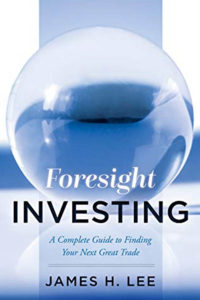
This was the investment book that I always wanted. It simply didn’t exist at the time. After I became a financial advisor, I spent fifteen years in post-graduate education, just getting all the alphabet soup behind my name, CFP, CFA, and all of that. What I was looking for was something a little bit more advanced than Finance for Dummies, but something that didn’t lapse into Greek. When you get into academic finance, they will lapse into Greek and roll out all of these equations, talking about all the betas and deltas, and it gets confusing very quickly.
I wanted something right in between, and something that used all of the skillsets that I’ve developed over the years as a futurist, as a financial analyst, as someone who looks at trends to create a single source that can tell you how to build your portfolio from top to bottom. That’s what this book is about. When COVID came around, it gave me the time and the space to do it. People ask, “How did you find time to write a book?” I’m like, “COVID, quarantine. I had all the time in the world. We got the book out. We make good choices.”
Me too. It’s so funny when I say that, “COVID hit, so what do you do? You write a book.”
There’s nothing else to do.
It made sense. Here’s the thing. Everything happens for a reason. COVID was horrifying and scary. We lost so many loved ones. People are still having issues, bronchial issues, and stuff like that. It’s real. On the flip side, as business owners, we use that time super wisely. That was good because we were able to create our masterpiece. I don’t know that it says necessarily a masterpiece, but for us, it’s our masterpiece. It’s a resource that’s needed in the marketplace. COVID allowed us the opportunity to create, which was a wonderful opportunity to seize.
It did. There was a moment there when we didn’t know if the wheels would fall off the wagon. We didn’t know what would happen. I ended up having two of my best years ever, which was amazing. I had this realization that if you have a niche, then geography doesn’t matter. Anyone in the world can become your client now, and more so now than ever before.
That was the other big shift for business owners and anybody. We stay in contact, and Zoom gets better and better. They’re constantly adding and refining bandwidth and all of these things. It’s an easier time to be in business than when I started my business years ago. It was a different time. The opportunities are there. That’s why I love doing the show. The Qwoted is another resource. As people hear things like that, you as a futurist, what does that mean? You have a book. Let me read that book. How can that help me? We have blind spots and we don’t know there are blind spots until you read a book or until you hear Jim say Qwoted or futurist.
This is why I love doing the show because we share great content to help people move the needle on whatever’s going on in their lives, their business, their careers, etc. We’re out of time, but I do want to share. Please, if you have a question, email Jim. It’s JLee@StratFi.com, that’s his email. The website is www.StratFi.com. Reach out and buy the book. See if Jim can help in creating more financial strength because we are in unprecedented times between COVID, what’s going on with Ukraine, our economy, and inflation. The world keeps changing. Are we insulating our financial portfolios so that we can shift and pivot as needed, just as we do in life? Maybe Jim is the answer to your prayer.
I recommend reaching out to him. I recommend buying the book because everybody doesn’t know about money and finance. This is a nice approach, Jim, what you’ve written. It’s not Finance for Dummies, but it’s not those algorithms, betas, thetas, and how to look at the backend of a business to see if it’s profitable to buy the stock. We don’t need that complexity of knowledge. I love that you created something in the middle. That’s just wonderful. Thank you for being on and sharing your zone of genius. It’s always a pleasure hanging out with you. I love your calm demeanor. For me, it’s soothing, believe it or not. Everybody’s laughing now because they’re like, “Connie doesn’t have a calm demeanor.” It’s always a pleasure seeing you, Jim.
Thank you.
I hope you’ll join me as we question, build, and discover together. Being heart-centered in business, it’s okay. It’s the way you should be. I hope that my guests and I, our stories, our tips, our books, our strategies, help you make that shift of being you instead of being what everybody else wants you to be, especially in the framework of business and career. I hope my resources, our conversations, Jim’s book, and all of those things help you navigate whatever’s happening in your life to make you stronger, better, faster, more productive, and more profitable in your own world. Jim, thank you again. Thank you all for reading. I wish you all a wonderful inspired week. Buy Jim’s book and create that financial stability in your life. We all deserve to be abundant in every aspect of our life. Thanks again for reading, and we’ll see you next episode. Have a great one.
Important Links
- Whitman Assoc
- StratFi
- Foresight Investing: A Complete Guide to Finding Your Next Great Trade
- Qwoted
- JLee@StratFi.com
- Connie’s #1 International Bestseller Book – ESP (Easy Sales Process): 7-Step to Sales Success
Stalk me online!
- Changing The Sales Game
- Connie’s #1 International Bestseller Book – ESP (Easy Sales Process): 7-Step to Sales Success
- Download Free Communication Style Assessment
- All-Star Community
Subscribe and listen to the Changing the Sales Game Podcast on your favorite podcast streaming service or on YouTube. New episodes post every week on webtalkradio.net – listen to Connie dive into new sales and business topics or problems you may have in your business.

 Jim and we are going to discuss how he made the leap from traditional sales in financial services to become radically successful in an unconventional niche.
Jim and we are going to discuss how he made the leap from traditional sales in financial services to become radically successful in an unconventional niche.